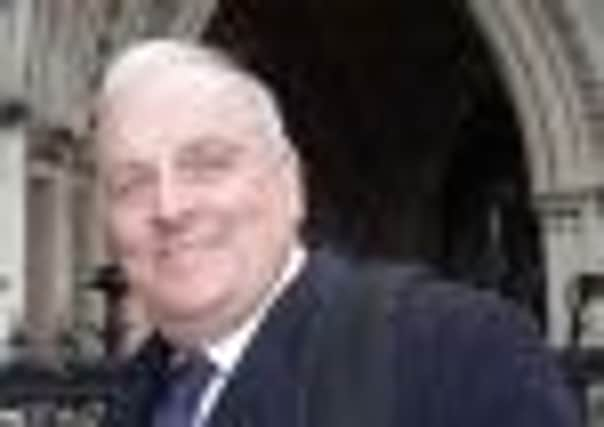Leveson Inquiry: Ex-Sun editor Kelvin MacKenzie says he didn’t worry about ethics


He told the Leveson Inquiry yesterday he did not spend much time worrying about journalistic ethics or which stories would sell more copies, leaving it to his readers to decide whether his decisions were right.
Mr MacKenzie, who edited the tabloid from 1981 to 1994, also insisted that Rupert Murdoch never put him under commercial pressure and, in fact, often felt that he went too far.
Advertisement
Hide AdAdvertisement
Hide Ad“I didn’t spend too much time pondering the ethics of how a story was gained, nor over-worry about whether to publish or not,” he said in a witness statement. “If we believed the story to be true and we felt Sun readers should know the facts, we published it and we left it to them to decide if we had done the right thing.
“They could decide we were correct and carry on purchasing us – in my time in ever-increasing numbers – or could decide we were wrong, in which they could decline to buy us again, ie Hillsborough.”
This was a reference to the Sun’s sharp circulation decline on Merseyside following its controversial coverage of the 1989 Hillsborough disaster, in which 96 Liverpool football fans died.
Mr Murdoch was furious when he found out the Sun was to pay £1 million in damages to Elton John after a story falsely claimed the singer had hired rent boys, the inquiry heard.
Mr MacKenzie recalled sending the media mogul a fax about the case, and then receiving a 40-minute phone call of “non-stop abuse”.
He told the hearing: “Let’s put it this way, he wasn’t pleased.”
He stood by comments he made in a Leveson Inquiry seminar in October, when he said: “My view was that if it sounded right it was probably right and therefore we should lob it in.”
He said he had looked up the definition of the word “lob” in an online dictionary, and found it meant “to throw in a slow arc”.
Advertisement
Hide AdAdvertisement
Hide Ad“The point I’m making is that we thought about something, and then put it in,” he said.
Mr MacKenzie told the hearing that when he was Sun editor he would meet then-prime minister Baroness Thatcher twice a year and might see Cabinet ministers between six and ten times a year.
“I was always astonished that a prime minister would want to meet a tabloid journalist with one GCSE,” he said.
Mr MacKenzie has previously described the Leveson Inquiry as “ludicrous” and suggested it is only being held because of Prime Minister David Cameron’s “obsessive a***-kissing” of Rupert Murdoch.
The colourful former editor was behind a number of contentious front-page Sun headlines, including “Freddie Starr Ate My Hamster” and “Gotcha!”, about the sinking of the Argentine warship General Belgrano during the Falklands War.
He rejected Anne Diamond’s evidence to the inquiry in November that Mr Murdoch’s editors waged a vendetta against her after she asked the media tycoon how he slept at night knowing his newspapers ruined people’s lives.
The former TV-am presenter spoke of her distress when the Sun published a front-page picture of her and her husband carrying the coffin of their baby son Sebastian in 1991.
But Mr MacKenzie told the inquiry: “I have had the advantage, as distinct from Ms Diamond, of working with Rupert Murdoch for 13 years closely.
Advertisement
Hide AdAdvertisement
Hide Ad“And I have never heard him say, ‘Go after anybody’ under any circumstances, whether it is the prime minister, a failing breakfast show host, or anybody. He’s never said it.”
Mr MacKenzie said the culture at the Sun had changed under its recent editors, and admitted he himself became “less bullish” towards the end of his time in charge.
“The editors are more cautious and were probably, in a changing world, right to be cautious,” he said.
Mr Cameron set up the Leveson Inquiry last July in response to revelations that the News of the World commissioned a private detective to hack murdered schoolgirl Milly Dowler’s phone after she disappeared in 2002.
The first part of the inquiry, sitting at the Royal Courts of Justice in London, is looking at the culture, practices and ethics of the press in general and is due to produce a report by September.
The second part, examining the extent of unlawful activities by journalists, will not begin until detectives have completed their investigation into alleged phone hacking and corrupt payments to police, and any prosecutions have been concluded.